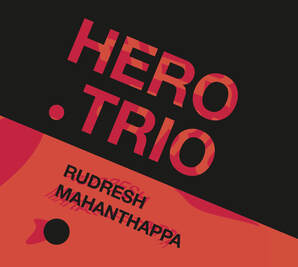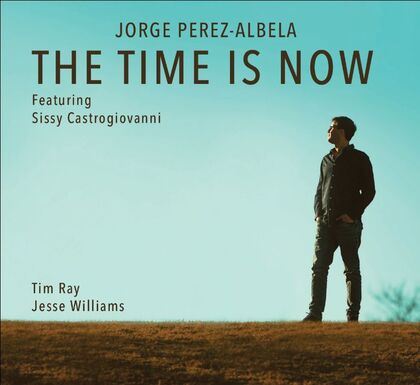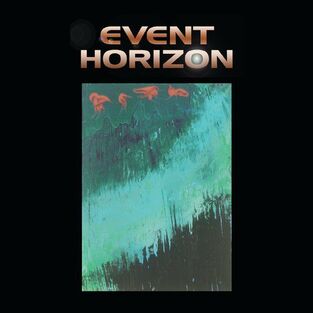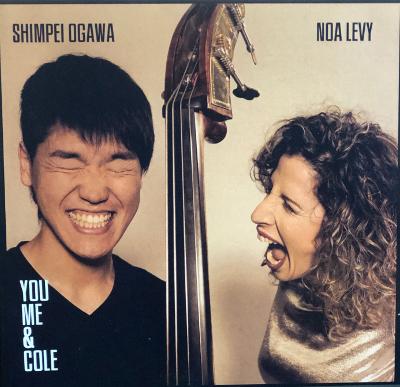
I've always enjoyed about Rudresh Mahanthappa is the way he never settles on a given expression or style. Ever since I began listening to him, he has pushed his own boundaries to new places and always finds fertile soil for his musical imagination wherever he ventures. Such is the case with his new album entitled Hero Trio.
Simply taken on the value of the three members of the trio, it is indeed a heroic lineup. With Rudresh, on alto saxophone, is the brilliant bassist Franςois Moutin and the fantastic drummer Rudy Royston. This is the same line-up that has accompanied him beginning with the 2015 CD Bird Calls.
Rudresh opens and closes the album with Charlie Parker tunes and in between Covers or rather reinterprets pieces from Stevie Wonder, Keith Jarrett, Ornette Coleman, and even Johnny Cash. He and Franςois and Rudy turn those pieces on their ears. Rudresh has an unmistakable sound that makes him easy to identify but his unique interpretation of legends like Parker and Coltrane and Jan Garbarek is simply astonishing.
The album opens with Parker's Red Cross and, for the rest of the album, will not depart far from the Yardbird songbook. Across is a fascinating traversing of time signatures and changes. From the opening track, the trio puts their full talents on display and gives you a sweet taste of things to come.
Then Rudresh takes on Stevie Wonder with the latter’s Overjoyed. That tune has been one of the most recognizable songs since it was released in 1985. But somehow Rudresh takes that work of such love and optimism and looks sideways at it through a more melancholic approach. A revised title could be Overjoyed in Spite of.
In one of the coolest tracks of the whole album, the trio dogs into that great Caribbean rhythm of Parker’s Barbados and then transitions into Coltrane’s 26-2. Buckle up for this one. Rudresh, Franςois and Rudy give it all they’ve got here and it pays off handsomely. I don’t mean that it is fast and furious, I’m talking about their incredible precision. I keep coming back to this track.
I Can’t Get Started is a 1936 composition of Vernon Duke and Ira Gershwin. Bunny Berrigan chose it as his theme song for his band starting in 1937. It has been recorded by Lester Young, Dizzy Gillespie, Sonny Rollins, Oscar Peterson, and Paul Bley, among so many other legends. Rudresh, a future-legend of his own, takes on the ARollins-Carter rhythm scheme and, with Franςois and Rudy, owns it. His tonality is fantastic. Franςois’ bass solo is low and smooth.
The Windup is from Keith Jarrett’s phenomenal album Belonging. It was Jarrett that brought me into the Jazz fold in 1975 and to hear a new favorite take on an old (and current) favorite is a blessing. Rudresh nails the Garbarek parts beautifully and the trio again proves that no one, no band, no orchestra, is beyond their reach. Listen over and over and pay attention to each member of the trio as they interpret and reinterpret Jarrett’s European quartet. And they do it without a piano.
Then comes the boldest attack of all—Rudresh takes possession of Johnny Cash’s Ring of Fire. You don’t have to be a Country & Western fan to appreciate Cash. In fact, it may help if you’re not! Cash is a far better composer that many of us Jazz snobs might like to admit. U2 attempted it but Rudresh proves the point.
I’ll Remember April got its official debut with Abbott and Costello in 1942. It has been recorded by Chet Baker, Cannonball Adderley, Miles Davis, Eric Dolphy, Charles Mingus, Sonny Stitt and dozens more. But Rudresh was taken with Sonny Rollins Blue Note recording of the tune. Again, with a pianoless trio. This trio just hammers it home and earns its place among the honored recordings.
Ornette Coleman’s Sadness is a work of wonder, especially under the tender mercies of Rudresh, Franςois, and Rudy. Franςois opens the piece and sets the tone. Rudresh expands and explores the Coleman piece with emotional and meaningful passages. Rudy knows just when to add and to subtract. These three belong together.
The album closes with Charlie Parker’s Dewy Square. The song is all too brief but they make every note count. If sports teams like to “leave it all on the field,” then so does this amazing and fascinating trio. All three take the time offered and they just own each and every piece presented.
Hero Trio is exactly what it says it is. Rudresh Mahanthappa, Franςois Moutin, and Rudy Royston have created a powerful, precise, and—okay—perfect album. There’s no Kryptonite on this album.
~Travis Rogers, Jr. is The Jazz Owl




 RSS Feed
RSS Feed
